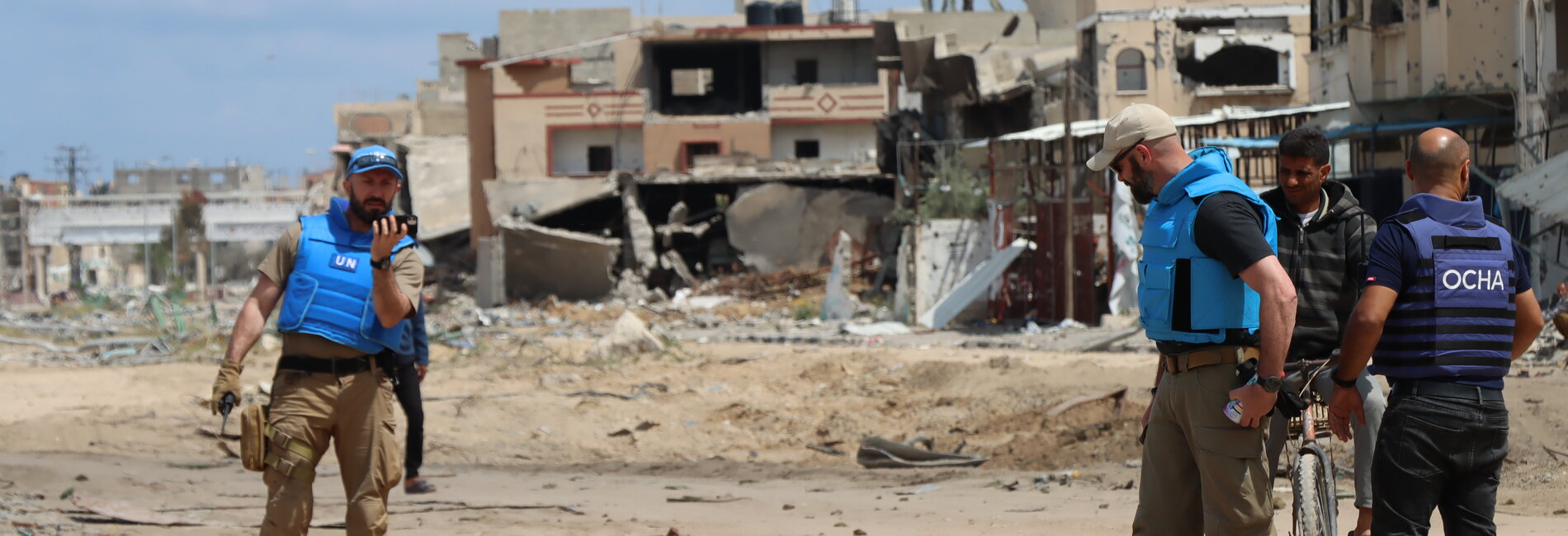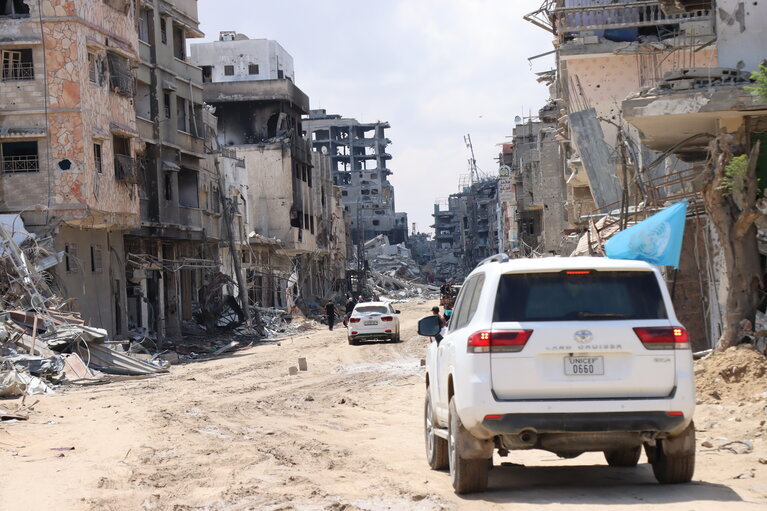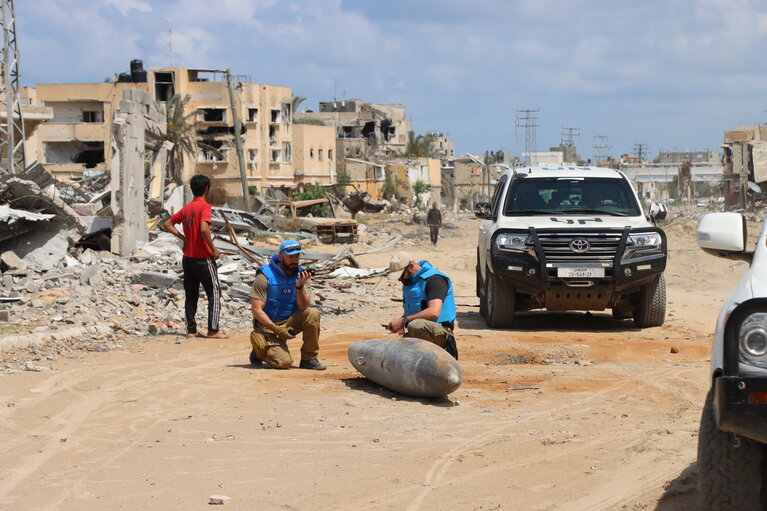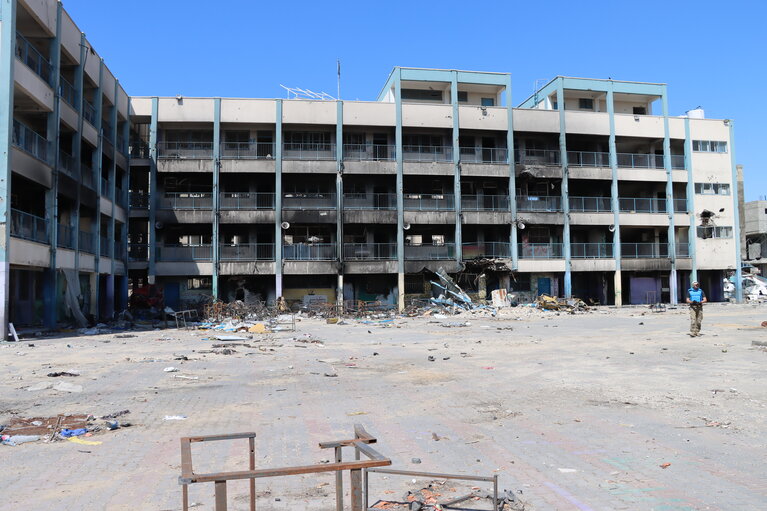Khan Younis following the withdrawal of Israeli troops
An assessment was conducted by a UN team in Khan Younis yesterday following the withdrawal of Israeli troops.
The team reported widespread destruction: Every building they visited – and most of those they observed – had been damaged, and paved roads had been reduced to dirt tracks. They inspected a UN warehouse, four medical centres, and eight schools, and all but one had significant damage.
Streets and public spaces in Khan Younis are littered with unexploded ordnance, posing severe risks to civilians. The team found unexploded 1,000-pound bombs lying on main intersections and inside schools.
Residents who returned to the area, and some who remained during the fighting, told the team about dire shortages of food and water and the loss of critical health services due to the destruction of Nasser and Al Amal hospitals.
Colleagues from OCHA, UNRWA, WHO, WFP, UNMAS and UNFPA participated in that mission. The mission's findings are documented in these photographs.
The Humanitarian Coordinator for the Occupied Palestinian Territory, Jamie McGoldrick, visited an UNRWA school in Khan Younis on Tuesday, where thousands of people are now sheltering. The community there needs more supplies and support, including food, water, health and sanitation.
* Originally published here.













